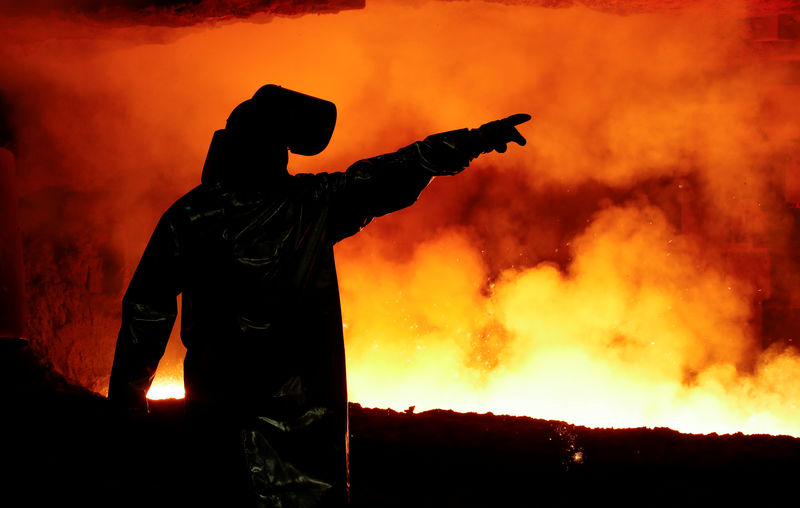LONDON, March 1 (Reuters) - Euro zone manufacturing activity went into reverse for the first time in over five years last month as trade war worries, slowing global growth and Britain's imminent departure from the European Union hit demand, a survey found.
The downbeat survey, which showed the slowdown was being led by Europe's powerhouse Germany, will likely concern European Central Bank policymakers, coming just two months after they drew a line under their 2.6 trillion euro stimulus programme.
Faced with a further slowdown in euro zone growth, the ECB will re-launch cheap bank loans as early as June and delay rate hikes to 2020 in a bid to stave off a recession, a Reuters poll predicted on Friday. [ECILT/EU]
IHS Markit's February final manufacturing Purchasing Managers' Index fell for a seventh month, coming in at 49.3 from January's 50.5, just above a flash reading but its first time below the 50 level separating growth from contraction since June 2013.
An index measuring output which feeds into a composite PMI due on Tuesday - seen as a good gauge of economic health - fell to 49.4 from 50.5, its lowest since May 2013.
Earlier figures from Germany, Europe's largest economy, showed factory growth contracted for a second month. France's manufacturing PMI showed growth slowed sharply while Spain's went sub-50 for the first time in over five years.
"Euro area manufacturing is in its deepest downturn for almost six years, with forward-looking indicators suggesting risks are tilted further to the downside as we move into spring," said Chris Williamson, chief business economist at IHS Markit.
Giving little hope for a turnaround in the bloc's fortune anytime soon, new orders fell at the fastest rate in almost six years, backlogs of work were run down, purchases of raw materials were curtailed and hiring remained weak.
Perhaps unsurprisingly, optimism was at one of its lowest levels since IHS Markit began collecting the data in July 2012. The future output index fell to 56.7 from 57.4.
"In addition to widespread trade war worries, often linked to U.S. tariffs, and concerns regarding the outlook for the global economy, companies report that heightened political uncertainty, including Brexit, is hitting demand and driving increased risk aversion," Williamson said.
